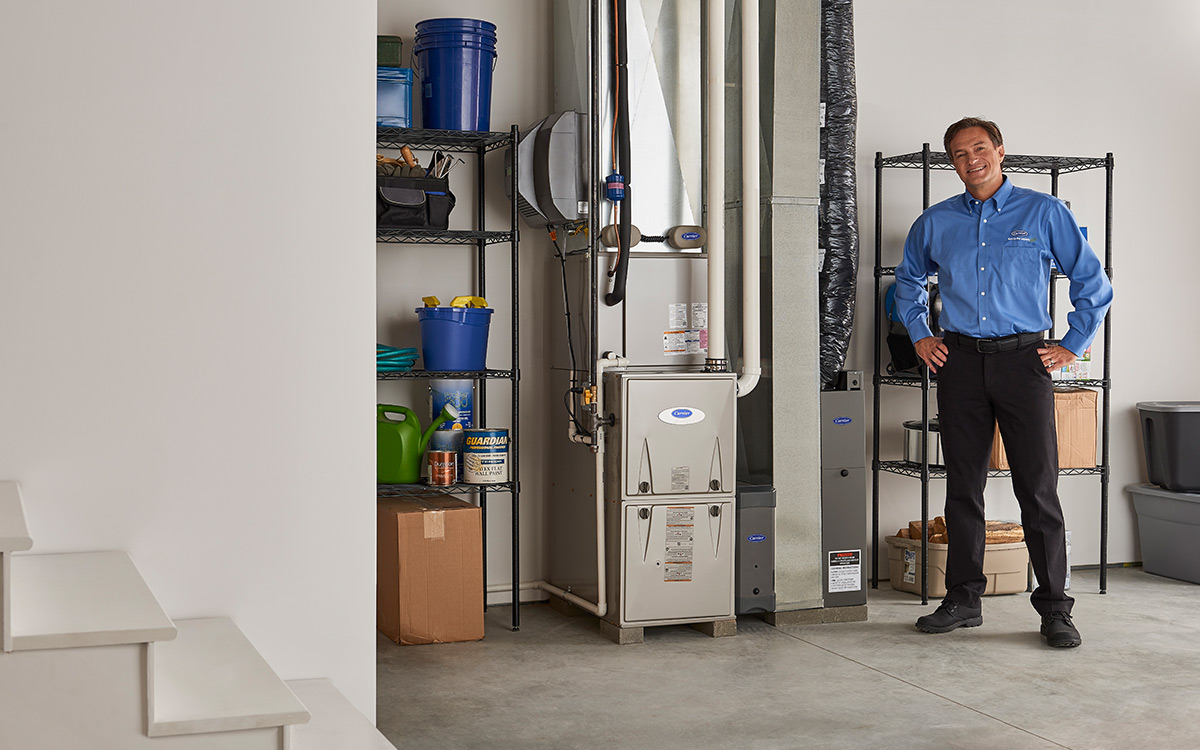
Your home’s HVAC system is the backbone of your indoor comfort, especially in Pittsburgh, where the seasons swing from icy winters to humid summers.
Maintaining this crucial system isn’t just about keeping cozy or cool—it’s about protecting your investment and ensuring efficient operation year after year. Neglecting your HVAC system can lead to skyrocketing energy bills, uneven temperatures, and even costly repairs.
In this guide, we’ll explore the essential components of a residential HVAC system that require regular maintenance. You’ll learn why upkeep is vital, how it enhances your home’s energy efficiency, and what steps to take to keep everything running smoothly.
Why Regular HVAC Maintenance is Essential
Most people forget about their HVAC system—until it stops working. Regular maintenance prevents this nightmare scenario, ensuring your system operates at peak performance throughout the year.
- Save money on energy bills: A well-maintained HVAC system runs more efficiently, consuming less energy to maintain your desired temperature. Over time, this adds up to significant savings.
- Prevent unexpected breakdowns: Routine checks can catch potential issues before they escalate into expensive repairs or system failures.
- Extend system lifespan: Regular upkeep reduces wear and tear, allowing your HVAC system to last longer and delaying the need for costly replacements.
- Enhance air quality: Clean filters and properly functioning components mean fewer allergens and pollutants circulating in your home, ensuring a healthier living environment.
In Pittsburgh’s variable climate, maintaining your HVAC system is more than a convenience—it’s a necessity.
Key Components of a Residential HVAC System to Maintain
Here are the key components of a residential HVAC system that need to be looked after:
1. Air Filters
Air filters are one of the simplest yet most impactful components of a residential HVAC system. Their job? To trap dust, pollen, pet dander, and other airborne particles, preventing them from circulating through your home.
Over time, these filters become clogged, restricting airflow and forcing your HVAC system to work harder. This not only increases energy usage but also strains the system. Clogged filters can even compromise indoor air quality, leading to discomfort or health issues.
Replace air filters every 1-3 months, depending on factors like pet ownership or allergy concerns.
2. Thermostat
Your thermostat does more than set the temperature—it ensures your HVAC system operates efficiently. A malfunctioning or inaccurate thermostat can lead to inconsistent temperatures and wasted energy.
Smart thermostats are especially popular in Pittsburgh homes, allowing you to control temperatures remotely and create energy-efficient schedules. Regularly check your thermostat for accuracy and replace batteries as needed. Clean your thermostat gently and update its settings seasonally to optimize performance.
3. Ductwork
Your ductwork delivers warm or cool air throughout your home. However, leaks, blockages, or poor insulation can significantly reduce efficiency. You might notice uneven temperatures in different rooms, which is a clear sign your ducts need attention.
Professional duct inspections can uncover hidden issues while cleaning ensures dust and debris aren’t obstructing airflow. Properly sealed and insulated ducts can improve efficiency by up to 20%, making a noticeable difference in energy bills.
4. Outdoor Unit
Your outdoor unit releases heat from inside your home to the outside. However, its exposed location makes it susceptible to debris like leaves, dirt, and grass clippings. Over time, this buildup can clog the coils, restrict airflow, and cause overheating.
Regularly clear debris around the unit and maintain at least two feet of clearance. For deeper cleaning, professional maintenance is recommended.
5. Indoor Unit
The indoor unit contains the evaporator coils and blower, which play a critical role in absorbing heat and circulating air. Dust buildup on these components can reduce efficiency and lead to uneven cooling or heating. Cleaning these components requires professional tools and expertise, so it’s best to include this in your seasonal HVAC tune-up.
6. Refrigerant
Refrigerant is what enables your HVAC system to cool your home effectively. Low refrigerant levels can cause insufficient cooling and strain the compressor. Unlike other maintenance tasks, handling refrigerant requires a licensed technician.
Never attempt to refill refrigerant on your own—it’s a specialized task that must meet safety and environmental standards.
7. Drain Line and Drain Pan
The drain line and pan are responsible for removing condensation created during the cooling process. Clogs in the drain line can cause water backups, leaks, and even water damage to your home. Inspect your drain pan for standing water and clear the line using a vinegar solution periodically to prevent clogs.
8. Blower Motor
The blower motor is essential for moving air throughout your home. Dust and dirt accumulation can cause the motor to overheat, leading to potential failure. Regular cleaning and lubrication help keep the blower motor running smoothly. Schedule annual maintenance to ensure the blower motor remains in top condition.
9. Electrical Components
Your HVAC system relies on capacitors, relays, and wiring to function. Over time, these components can wear out, causing malfunctions or even complete system failures. Professional inspections are essential for identifying worn electrical parts and replacing them before they lead to larger issues.
Tips for Pittsburgh Homeowners
Maintaining your HVAC system doesn’t have to be overwhelming. Here are some practical tips to stay ahead of potential issues:
- Schedule biannual maintenance: Spring and fall are ideal times for professional inspections and tune-ups.
- Monitor energy bills: A sudden spike in energy costs can indicate an underlying problem with your HVAC system.
- Keep units clear: Ensure your outdoor unit is free from debris and your indoor vents are unobstructed.
- Invest in a maintenance plan: Many Pittsburgh HVAC providers offer affordable plans that include regular inspections, cleanings, and priority service.
Frequently Asked Questions
Below are some commonly asked questions to consider:
1. How do I know if my HVAC system needs repair?
If your system is making unusual noises, failing to heat or cool effectively, or causing your energy bills to skyrocket, it’s time to call a professional.
2. What’s the best way to improve indoor air quality with my HVAC system?
Besides regularly replacing air filters, consider adding an air purifier or dehumidifier to your system. These can help remove pollutants and control humidity levels.
3. How long should a residential HVAC system last?
With proper maintenance, most HVAC systems can last up to 15-20 years. Scheduling regular tune-ups can help you reach the higher end of that range.
All components of a residential HVAC system need proper care and maintenance
A properly maintained HVAC system ensures your Pittsburgh home stays comfortable no matter the season. By giving attention to the key components—like air filters, ductwork, and the outdoor unit—you can enhance efficiency, extend the system’s lifespan, and enjoy better indoor air quality. Regular HVAC maintenance isn’t just a chore; it’s an investment in your home’s comfort and energy savings.
Whether it’s cleaning a filter or scheduling a professional tune-up, every step you take toward HVAC maintenance makes a difference. Don’t wait for a breakdown—start prioritizing your HVAC system today and enjoy the peace of mind that comes with a comfortable and energy-efficient home.

